Will carbon capture ever happen in the UK?
- Published
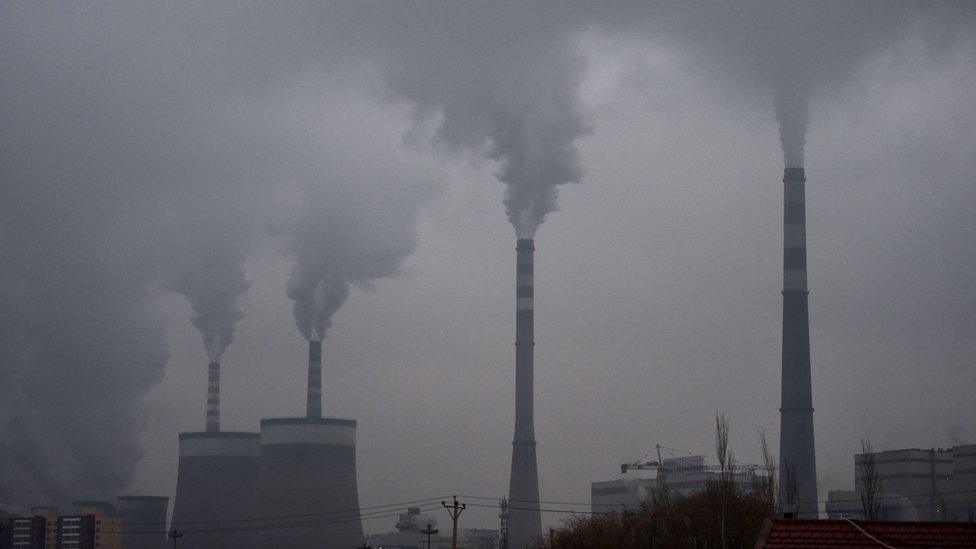
Coal power stations have been keeping the lights on across the world for generations
For generations, coal power stations have provided a reliable, relatively cheap way to keep the lights on.
But it now seems like they're becoming a term that's as dirty as the pollution they release into the atmosphere.
Storing that pollution away - carbon capture - has been hailed as a solution to the problem.
But repeated attempts to get the technology off the ground in the UK have so far stalled - so will it ever happen?

A simple concept
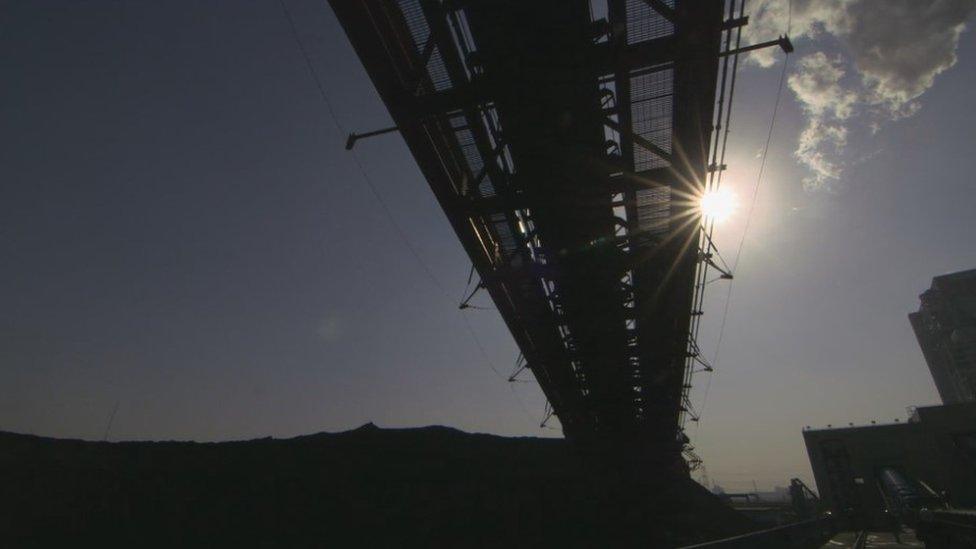
Coal power stations produce carbon dioxide
The idea behind carbon capture is relatively straightforward.
Places like coal power stations produce carbon dioxide, but instead of being funnelled into the air, it's stored away.
One way to do this is by taking it away by pipeline to an offshore platform where it's injected into the space left by depleted oil and gas fields.
Scotland has the capability to be at the forefront of this technology, given the North Sea's potential as the biggest CO2 storage space in Europe.
But as simple as the theory is, carbon capture needs a lot of funding to develop it.

Trying and failing
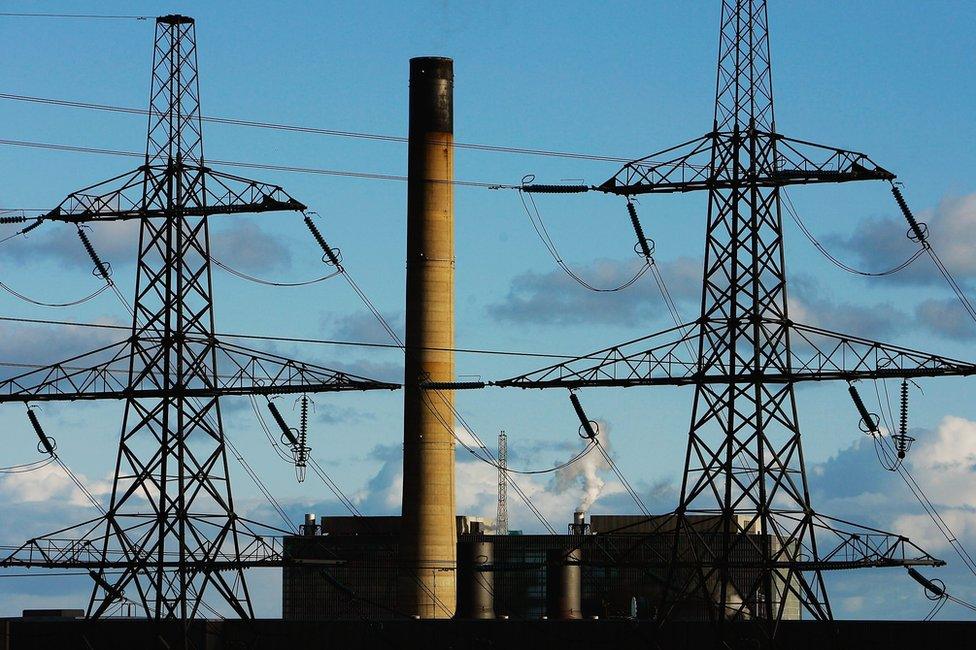
BP abandoned plans for a carbon capture plant at Peterhead in 2007
In 2013, the future looked bright.
A project at the gas-fired Peterhead power station, being taken forward by Shell and SSE was named by the UK government as one of two preferred bidders in a £1bn competition to develop carbon capture.
The following year, the then deputy prime minister Nick Clegg and environment secretary Ed Davey visited the site in Aberdeenshire to express their backing for carbon capture.
Mr Davey said at the time: "It shows the UK's leading in the low-carbon challenge to tackle climate change and get cleaner energy."
But that dream is potentially now over, after the UK government scrapped the funding in its 2015 spending review.
Without government support, experts say that's bad news for the chances of getting the technology off the ground.
'Negligent and naive'
Prof Stuart Haszeldine, director of Scottish Carbon Capture and Storage, said: "You can't develop the first projects very easily without government backing, because any first project is usually much more expensive than the follow-on projects, because you're over-engineering.
"That's what that government help of £1bn is needed for, to help part-fund carbon capture projects.
"After you've built the first ones, it becomes cheaper."
He added: "To not even venture down this path, when it's clearly shown that carbon capture and storage is by far the best financial benefit to the whole economy is negligent, naive and deceitful."
We've been here before.
In 2007, BP abandoned plans for a £500m carbon capture plant, also at Peterhead, blaming Westminster for delays in support.
Four years later, a similar proposal for Fife's Longannet power station - one of the country's biggest polluters - was also scrapped.
On that occasion, the UK government failed to reach a deal with power companies to allow the project to go ahead.
And in September this year, energy firm Drax - the other contender in the now defunct £1bn carbon capture competition - abandoned its stake in a project to store carbon dioxide next to its plant in North Yorkshire which is the biggest coal-fired power station in the UK.
It decided to halt further investment because of the UK government's decision to reduce subsidies for renewable energy.

Future hopes
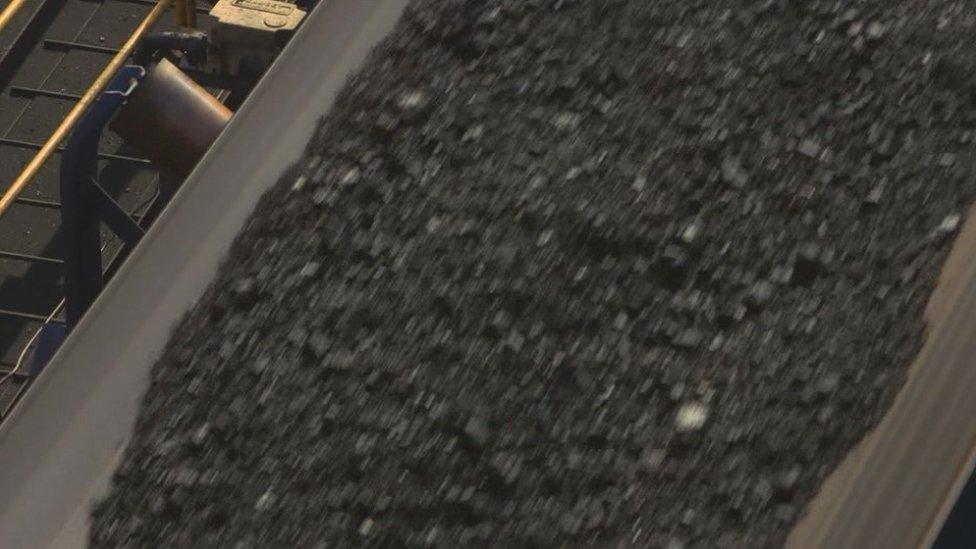
The UK government would like to move away from coal and towards gas-fired power stations
Will carbon capture ever happen in Britain?
Following the UK government's decision this week, Shell said that without the funding it no longer saw a future for the proposal for the time being.
And that presents another problem, because if cutting carbon emissions results in the end of coal power stations, then you need to find another way of keeping the lights on.
UK Energy Secretary Amber Rudd, who favours gas-fired energy, has proposed closing Britain's remaining coal power stations by 2025 - unless they can install carbon capture.
Scottish First Minister Nicola Sturgeon has called on Westminster ministers to reinstate the £1bn competition fund, branding their decision "utter folly".
The UK government has made it clear that, with public spending remaining tight, things have to be cut from its programme.
Its department for energy and climate change says carbon capture could still have a part to play in making the country greener.
In a statement, a spokesman for the department, said: "The government has confirmed that the expected capital grant funding for the carbon capture storage competition is no longer available.
"CCS has a potential role in the long-term decarbonisation of the UK and the government will engage closely with bidders on the implication of this decision for them."
As those discussions continue, CO2 emissions continue to rise.
- Published25 November 2015
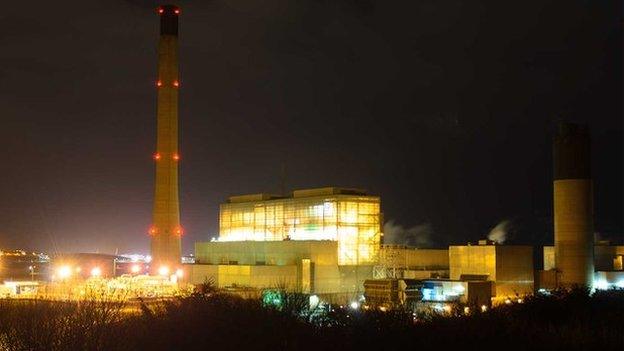
- Published26 November 2015
